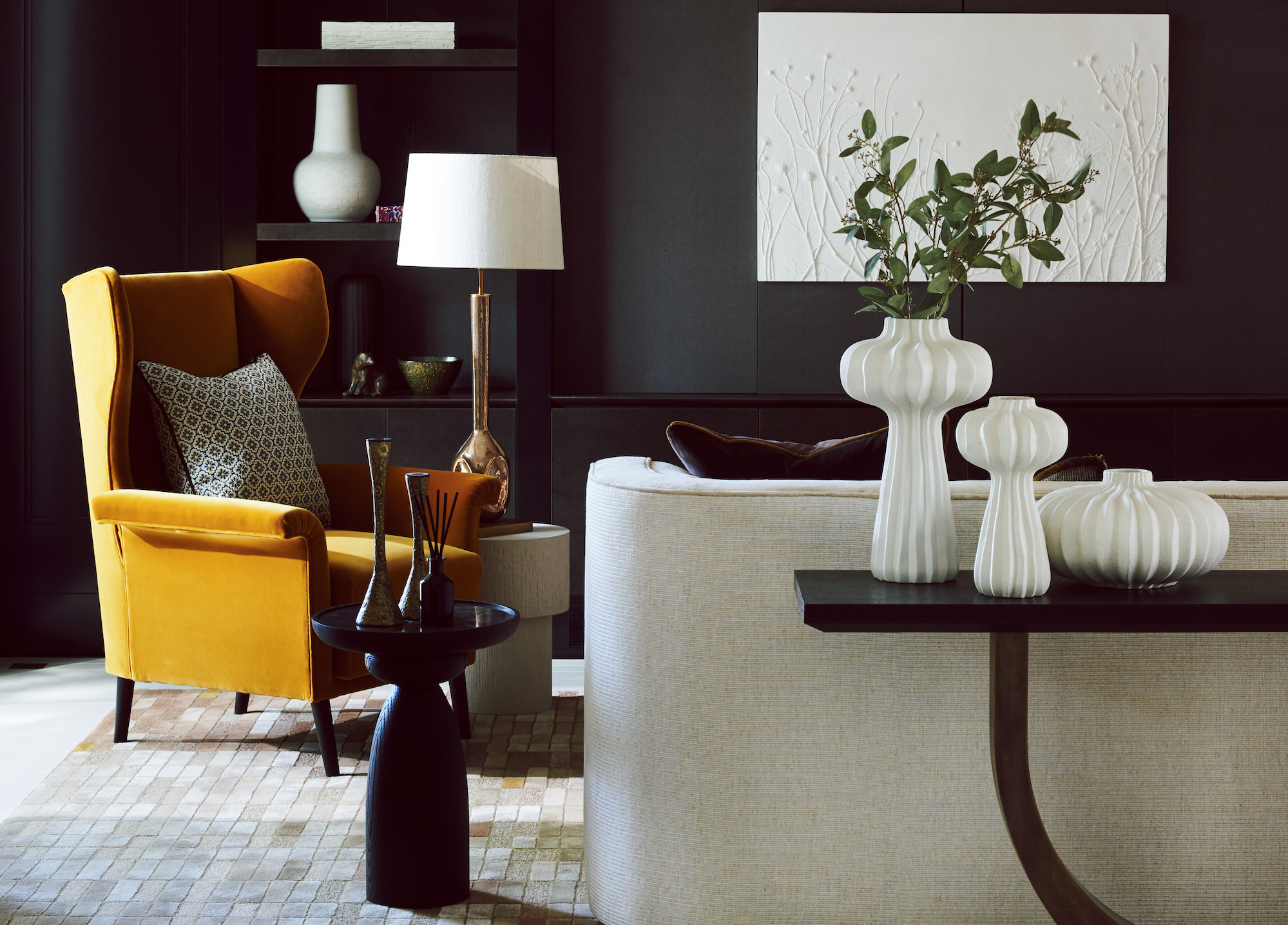Charu Gandhi chose London as her base when founding Elicyon back in 2014, trusting her instinct that the UK’s capital embraces people from all walks of life and every background if they are committed to excellence.
“That summer, London had such an incredible energy,” says Gandhi. “Clients were flocking here, and I felt very confident throwing my energy into this city. London is the epicentre of design because Britain has a long history of honouring its professions, from joiners to goldsmiths. Just look at the master guilds, or the rigorous process that a master architect goes through to qualify, or a brand to receive a royal warrant. All these impose a certain calibre on that historic legacy for craftsmanship that plays such a role in how British design is perceived in the world. I’d like to pay homage to our British craftsmen, whose hard work helped keep our industry going in incredibly challenging circumstances.”
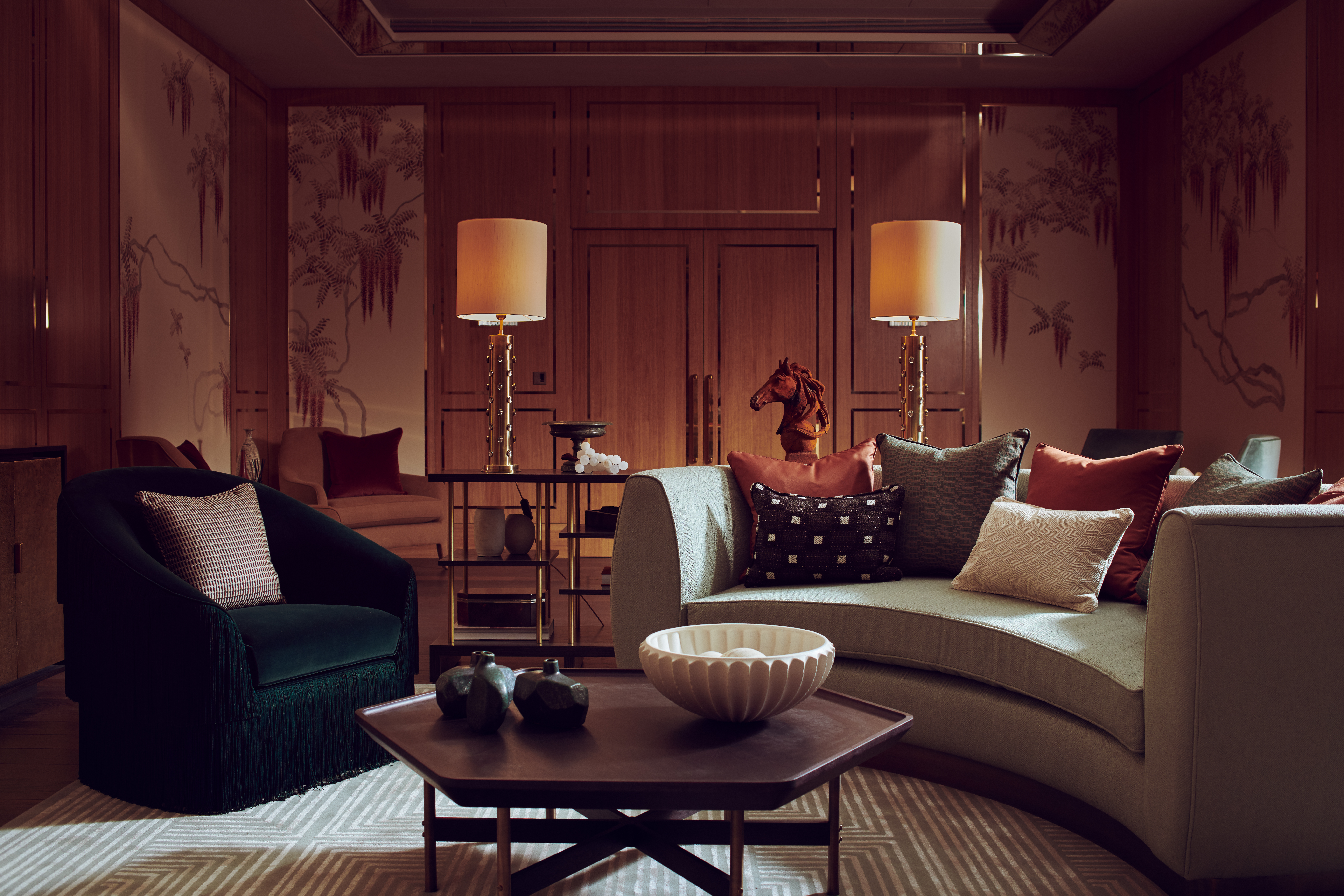
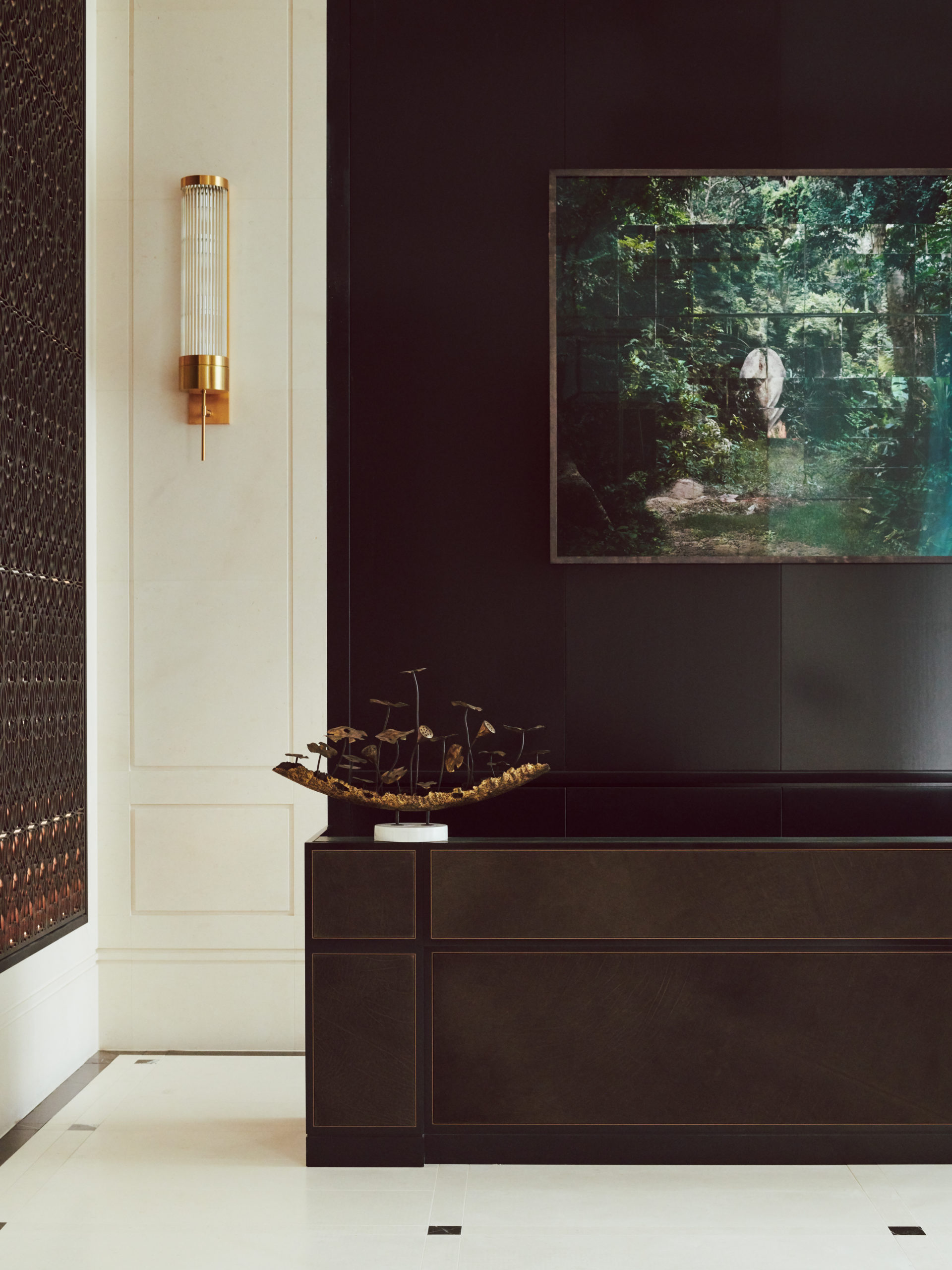
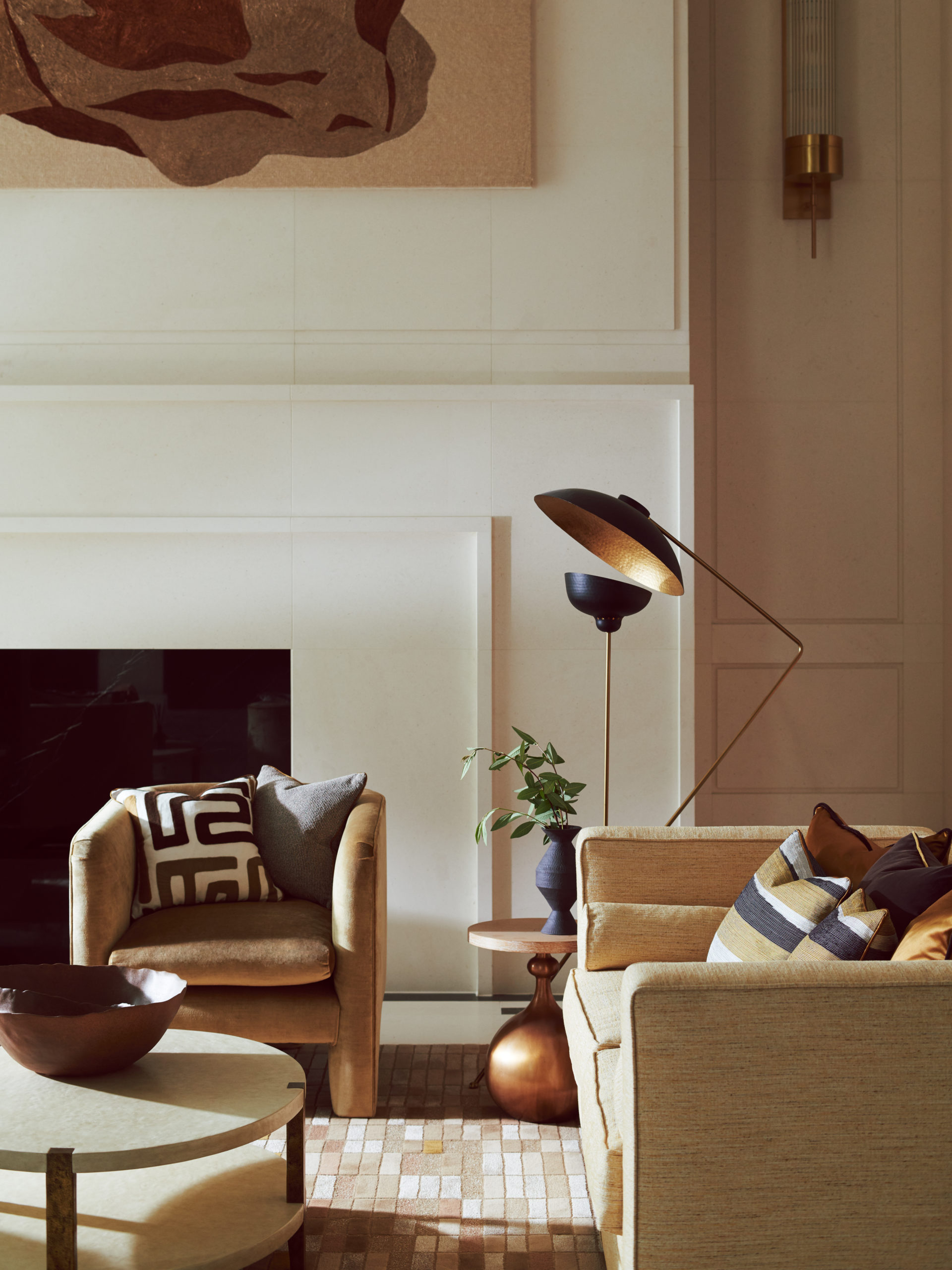
She recounts the story of a young Chinese client who fell in love with British design while at university in the UK. Moving back to Shanghai, he was intent on working with a British studio that could create an authentically British home.
So, he turned to Elicyon. “We had to modify certain things,” says Gandhi, “like the very British open-plan kitchen that wasn’t ideal for oily stir fries. But we dry-fitted the entire apartment in our joinery workshop, then flat-packed it and air-freighted it to China. He was so concerned with Britishness that he wanted us to bring Farrow & Ball paint from London rather than buying it from an authorised supplier, so we went through a process of mutual education. We are very British, but with an international outlook, sourcing from all over the world – from Switzerland and the Czech Republic to Australasia and Cambodia. Plus, we didn’t think this was a sustainable solution, so we persuaded him that you can find good quality everywhere – as long as you source it carefully.”
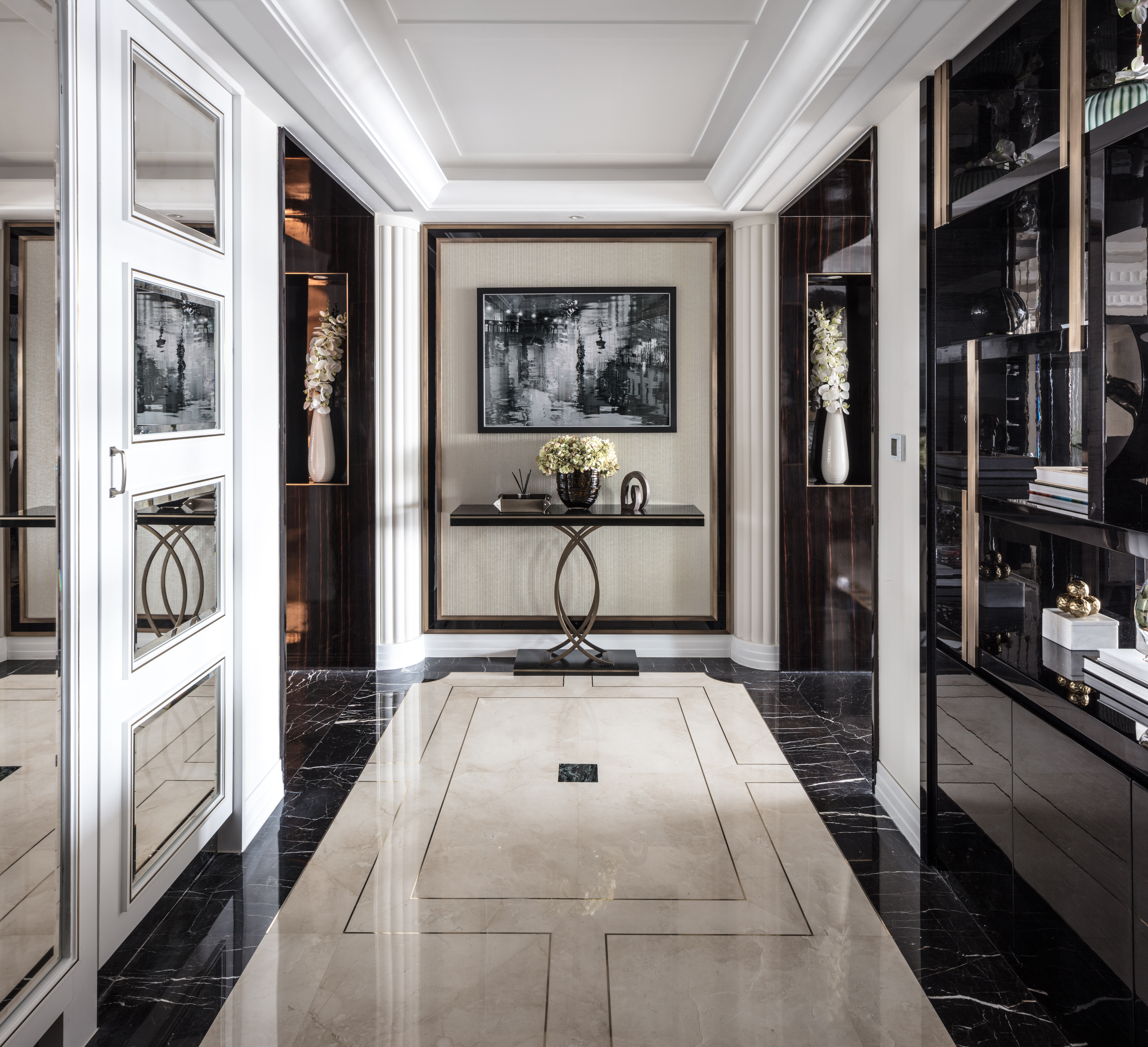
It’s clear that Elicyon prides itself on a highly personal relationship with clients, and it’s an approach that has seen the company flourish. Its team has grown from 17 to 30 since 2019, with turnover increasing by an impressive 25% a year – all while maintaining a modest number of just 12 to 15 projects.
“We prefer to sink our teeth fully into a project and really oversee it alongside our clients, because we’re creating homes that encapsulate families’ hopes and dreams,” explains Gandhi. “So much more than bricks and mortar, homes are a refuge – and Covid really shone a light on that. The pandemic has caused such a fascinating shift, with more families living multi-generationally. We’re seeing clients moving to north London for bigger houses, or to the home counties, and even wanting a yacht as a Covid-safe haven in a crazy world. Our client base is diverse but the common thread is that until now, they’ve been super-busy and on the move with multiple homes. Covid has brought stillness to people, and they’ve had to focus on just one home and make it work for all of them. But for us, the multi-billion-dollar question remains: “Are these changes going to be permanent?”
So much more than bricks and mortar, homes are a refuge – and Covid really shone a light on that.
Charu Gandhi, founder of Elicyon
The question poses a challenge to Elicyon’s sustainable aim of ensuring that everything they install lasts a lifetime. So, the company is designing flexible solutions. For example, if a guest bedroom is temporarily a home office, then the desk must be capable of being folded away, or office equipment screened off, so the room can convert back again.
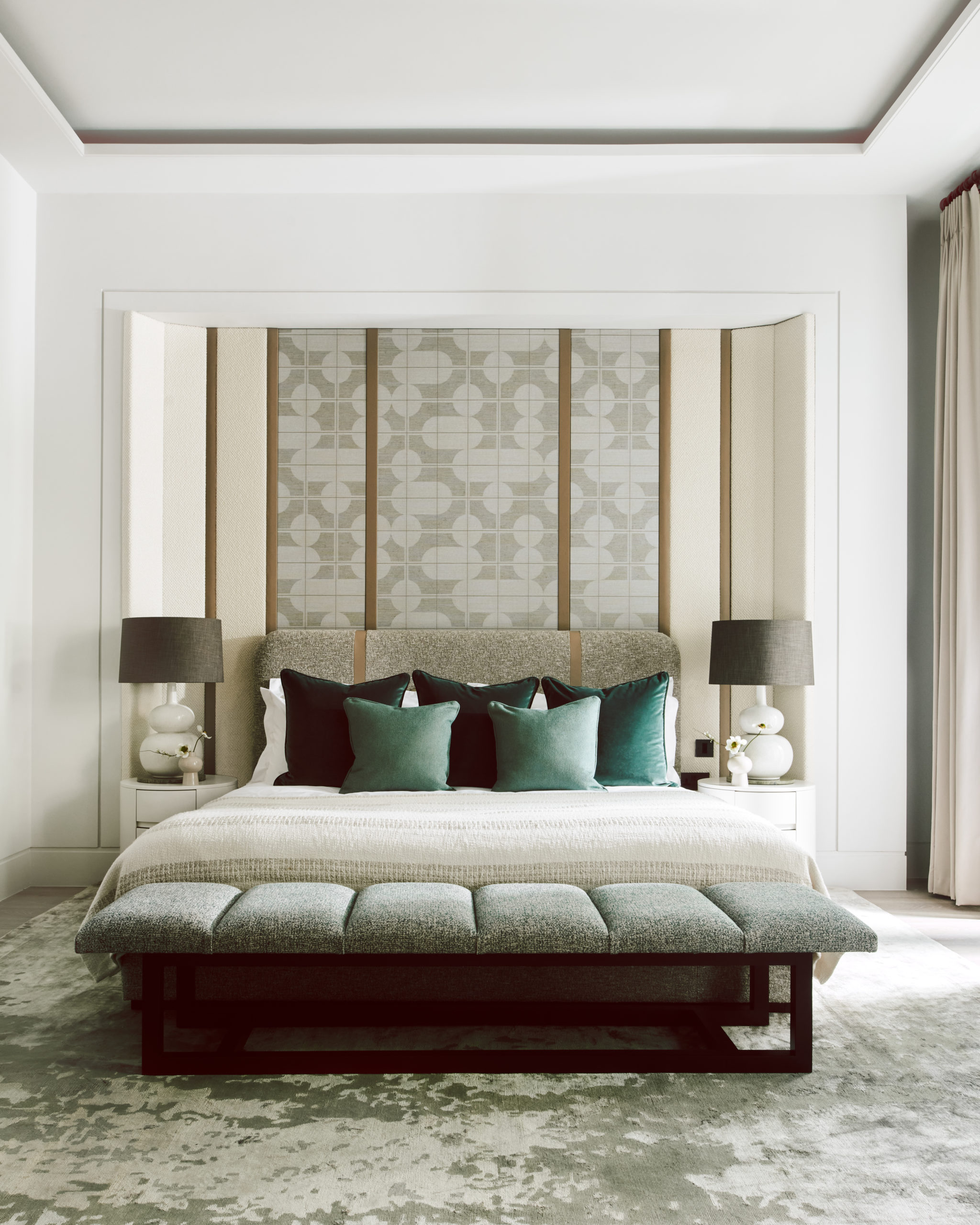
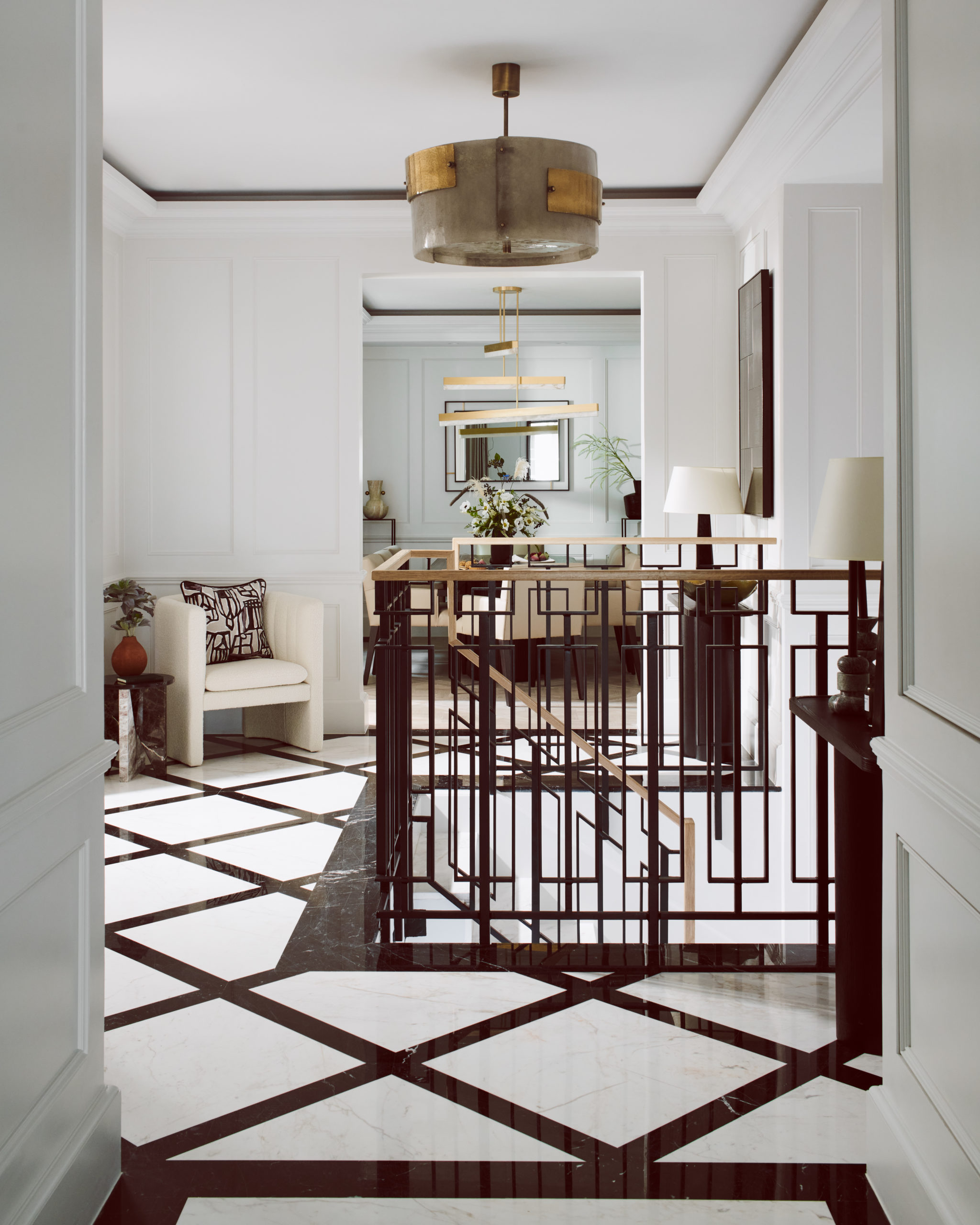
Gandhi saw four distinct phases of shifts. First, there was a preoccupation with health and safety, involving wardrobes that could be disinfected, sanitisation stations for deliveries, air purifiers and so on. Next came the utility phase. “This was about managing a whole family living and working under one roof,” she explains, “as you can’t have four people round the dining table on different Zooms. We had to think about daytime lighting and acoustics.”
In the third self-actualisation phase, people began questioning what they really wanted their homes to deliver. Elicyon was installing home gyms or dedicated spaces for meditation or reading. One client became a passionate gift-wrapper during Covid, so Elicyon built a room with a vertical installation of adjustable metal rods for the rolls.
Finally, there was the community phase: “We saw generations who used to go out separately now partying together in the new spaces we were creating,” says Gandhi. Elicyon was asked to dedicate the enormous basement of a Lake District house to fun. This included bowling alley, darts, ping pong, gaming room and DJ booth.
Gandhi also describes how entertaining changed: “When people could have just six people round, they really wanted it to be special, so we started creating different moods for dining and doing lots of tablescaping. We’d do a Christmas theme, or dress a table with gorgeous lemon-and-leaf plates and bright linens for an Amalfi Coast atmosphere.”
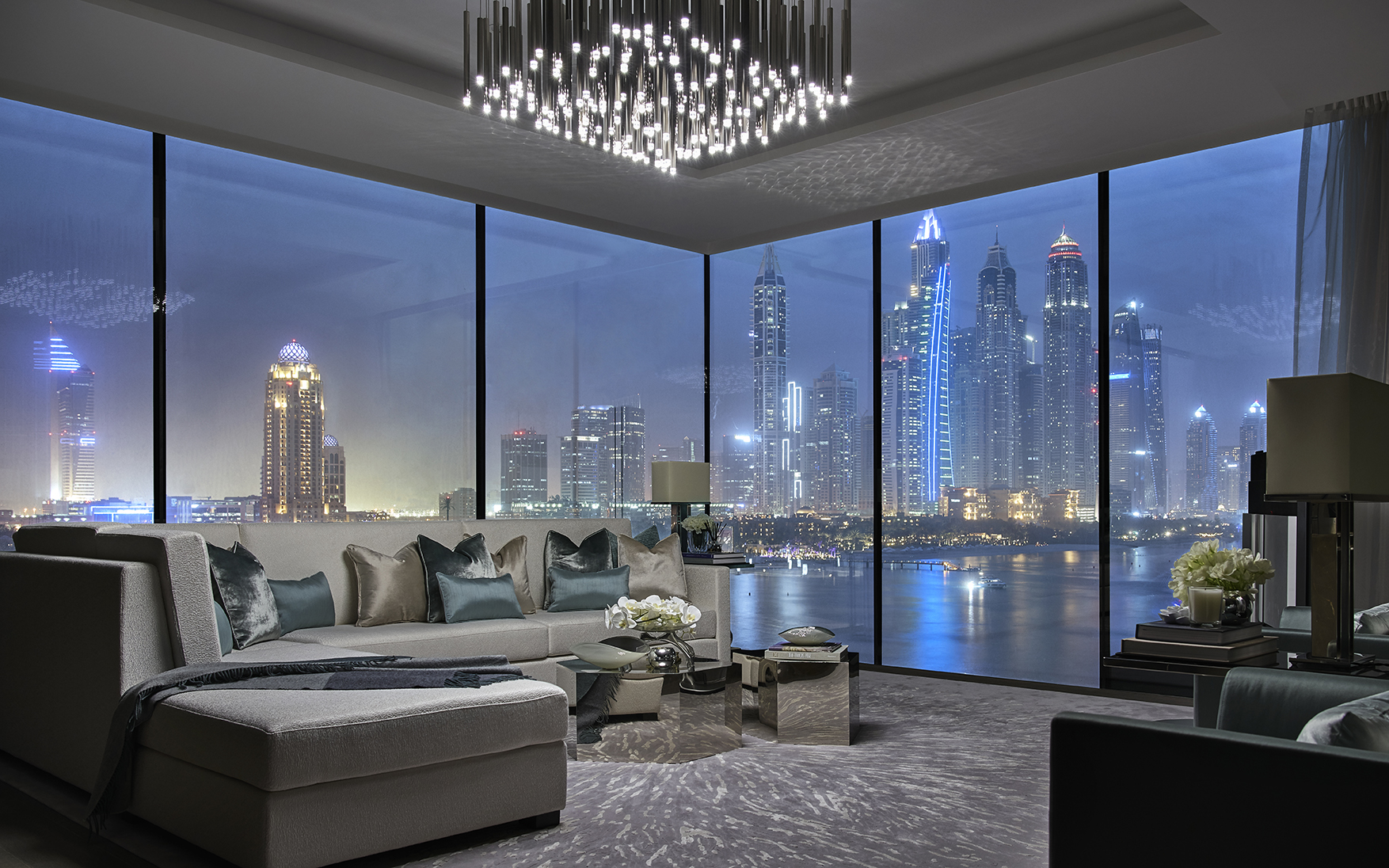
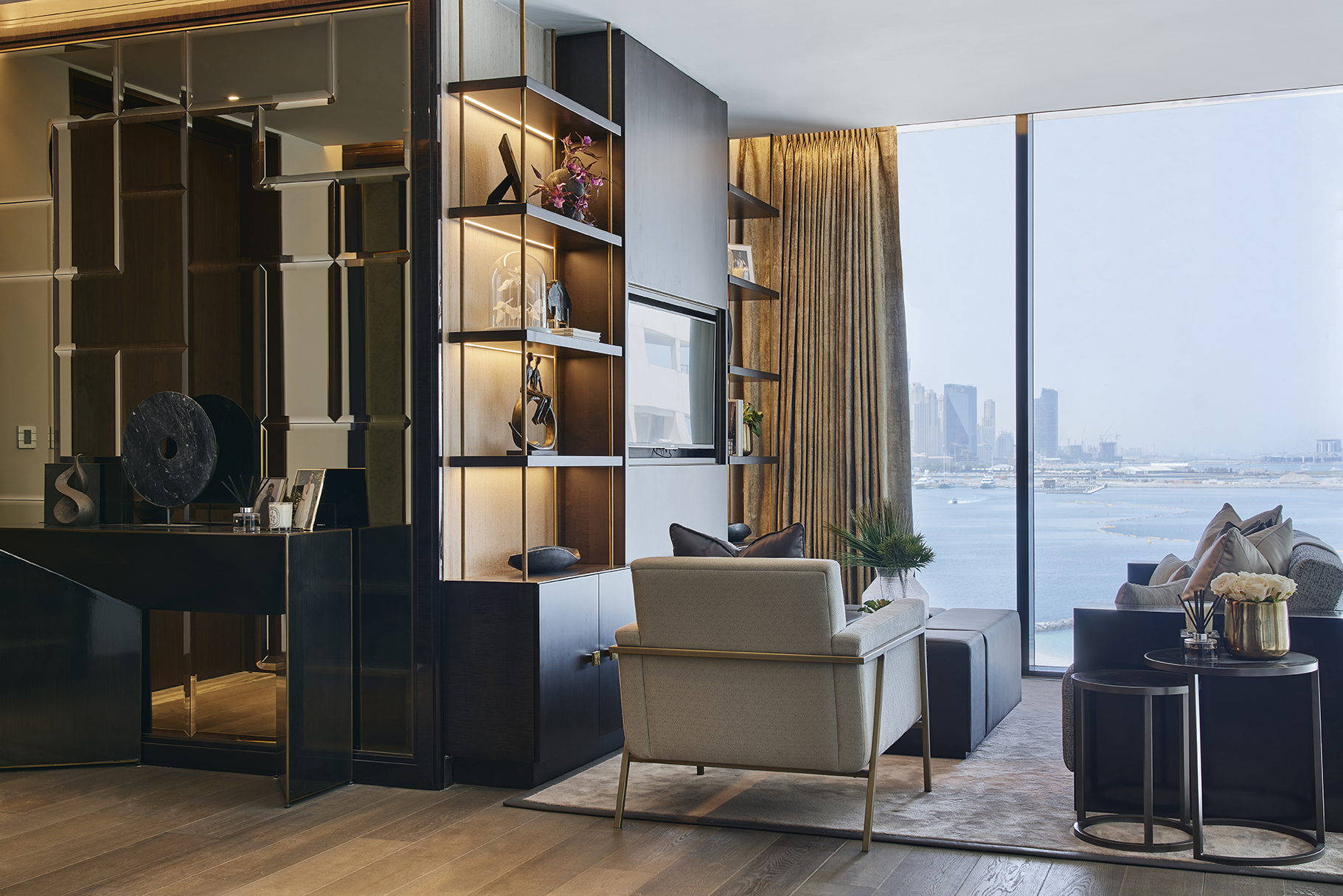
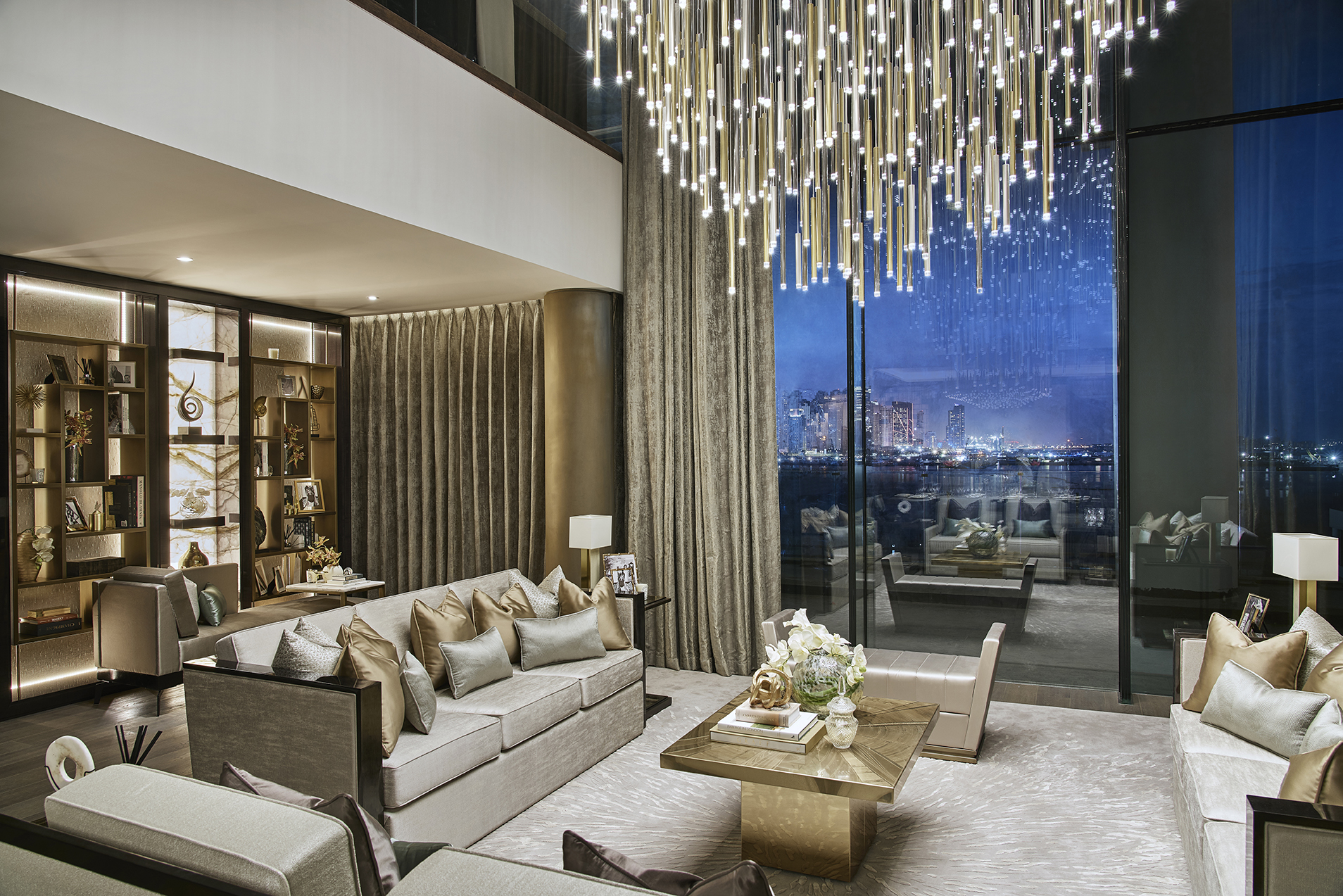
In Dubai, Elicyon has designed seven apartments in Omniyat’s One Palm building and has just completed a 20,000-sq-ft apartment with a vast roof terrace on the 21st floor. “We really got into the granular about how this family wanted to live,” says Gandhi. “There’s a pool, but also somewhere for outdoor cooking, lounging, playing with kids, massage, ping pong and a cinema screen. Dubai’s particular challenge post-Covid is creating these kind of multi-purpose, family outdoor spaces in an increasingly crowded city.”
In Jakarta, clients bought an apartment directly below their existing one and asked Elicyon to install a playroom for their daughter, a wellness centre, and a guest suite for their parents, envisaging them staying for longer periods.
“All this resonated as I went through a similar thought-process,” says Gandhi. “Obviously, not all of us can have huge roof terraces or bowling alleys, but it’s taken a world event to find common ground, and now we’re all united in rethinking how we live, who our community is and what we need from our homes.”
Effect Magazine is brought to you by Effetto



